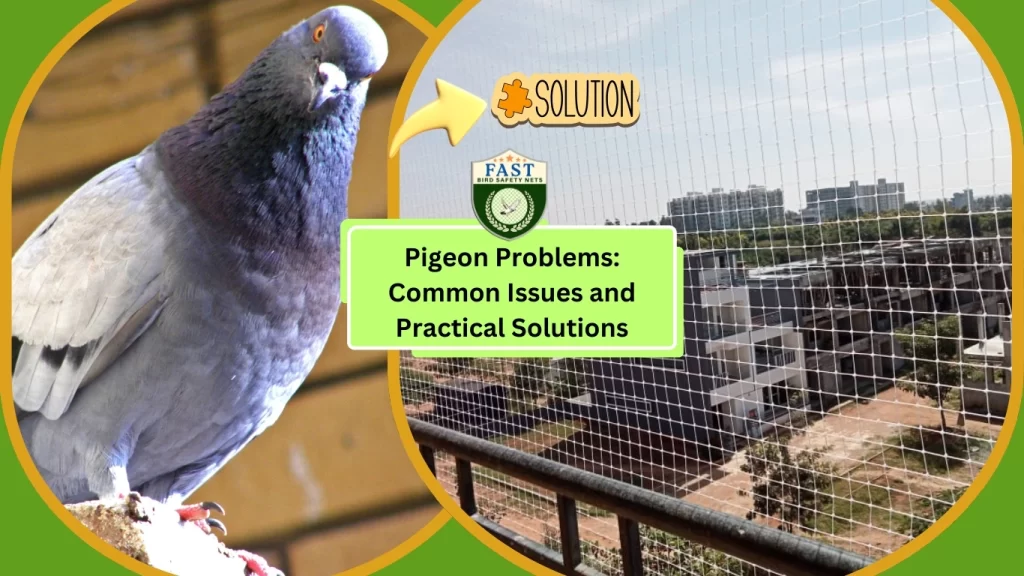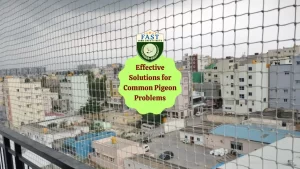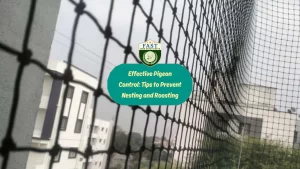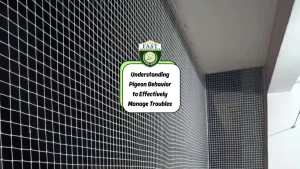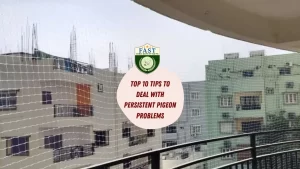Pigeons, with their ubiquitous presence in urban areas, can pose a variety of problems for homeowners and property managers. From property damage to health concerns, dealing with pigeon-related issues requires a proactive approach and practical solutions. Here’s an overview of common pigeon problems and Practical Solutions to address them:
1. Property Damage
Pigeons can cause extensive damage to buildings and structures through their nesting activities and droppings. Their acidic droppings can corrode surfaces, leading to deterioration of roofs, gutters, and facades. Additionally, nests built in eaves, vents, and other confined spaces can block drainage systems and pose fire hazards.
Solution: Install bird control measures such as bird spikes, bird netting, or bird repellent gel to deter pigeons from landing and nesting on your property. Regularly inspect and clean areas prone to pigeon activity to prevent damage and ensure proper maintenance.
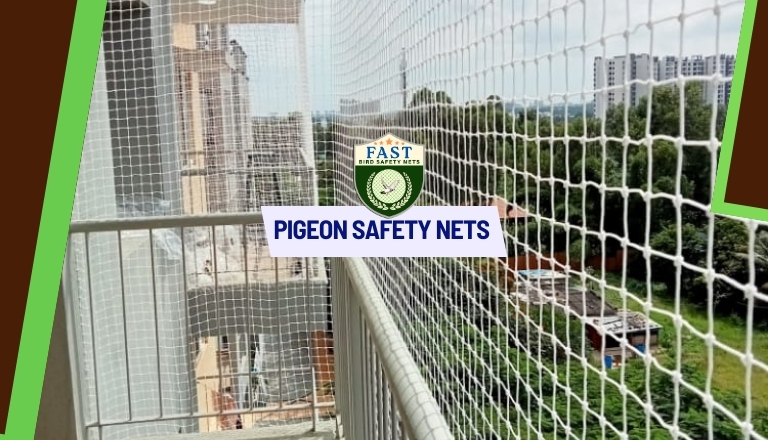
2. Health Risks
Pigeon droppings contain pathogens, bacteria, and fungi that can pose health risks to humans. Exposure to pigeon droppings or nesting materials can lead to respiratory issues, allergic reactions, and diseases such as histoplasmosis and cryptococcosis. In addition, dried pigeon droppings can become airborne when disturbed, increasing the risk of inhalation.
Solution: Wear protective gear such as gloves and masks when cleaning pigeon droppings or handling contaminated areas. Implement proper sanitation measures to minimize the accumulation of droppings and reduce the risk of exposure. Consider hiring professional pest control services for thorough cleaning and disinfection.
3. Nuisance and Disturbance
Pigeons can be a nuisance to residents and tenants due to their incessant cooing, aggressive behavior, and tendency to gather in large numbers. Their presence can disrupt outdoor activities, such as dining or gardening, and detract from the enjoyment of outdoor spaces.
Solution: Use visual deterrents such as reflective surfaces, predator decoys, or scare balloons to deter pigeons from congregating on your property. Implement sound deterrents such as ultrasonic devices or bird distress calls to discourage pigeons from roosting in the area.
4. Food Contamination
Pigeons scavenging for food in outdoor dining areas, garbage bins, and food storage areas can contaminate food and surfaces with their droppings and bacteria. Their presence in food establishments can also result in regulatory violations and health inspection issues.
Solution: Implement proper food storage and waste management practices to minimize access to food sources for pigeons. Seal garbage bins securely, clean up food spills promptly, and restrict access to outdoor dining areas to prevent pigeons from scavenging.
In conclusion, addressing pigeon problems requires a combination of proactive measures and practical solutions tailored to the specific issues faced by homeowners and property managers. By implementing bird control measures, maintaining proper sanitation practices, and seeking professional assistance when needed, property owners can effectively manage pigeon-related problems and create a safer and healthier environment for residents and tenants.

